Amancay Colque, Bolivian immigrant, teacher, activist, with trade union, social and political experience. She lived in Argentina for several years and has lived in London since 1989. Her life is marked by the struggle against discrimination and injustice, leading concrete actions and collective initiatives to connect communities across continents, culture and politics. Series: “Immigrants and activists”.
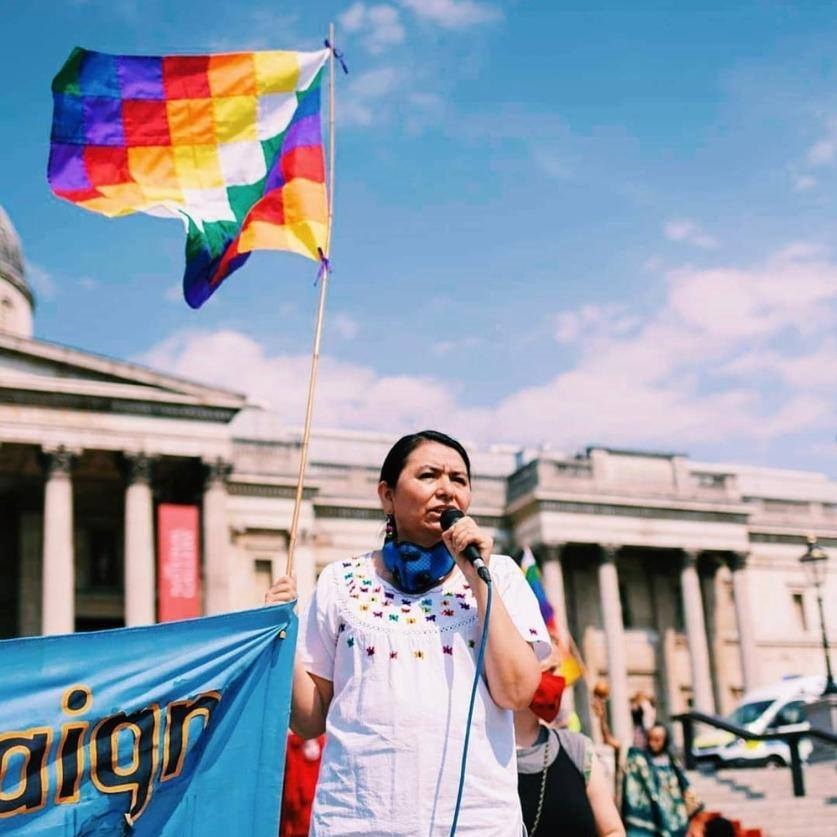 Josefina Viano
Josefina Viano
In her childhood, Amancay was influenced by the music of Benjo Cruz, the stories of struggle of Juana Azurduy de Padilla, the films of Jorge Sanjinez, the life of Domitila Chungara and authors such as Eduardo Galeano and his book “Las venas abiertas de América Latina” (The Open Veins of Latin America).
This book was bought by her mother, with great sacrifice, and was first read by her brother and comrade in struggle. And when it was her turn she read it secretly, because by then the text was forbidden by the dictatorship.
Her mother and her grandmother, passed on their values and customs to her with love. As Amancay mentions: “In my house, indigenous ceremonies were held, we thanked the Mother Earth, we connected with nature”.
Her time in early education was a period of intense learning. She spent years there learning traditional group dances, which, over time, took on a new meaning and she understood that they were valuable inherited cultural tools to keep the people moving and organised, subject to their millenary identity.
As she grew up, she began to notice a certain “cognitive dissonance”: “At school, when I said a word in Aymara, we were challenged, there was discrimination. Many people were trying to get closer to Europe and differentiate themselves from those of us of indigenous descent. At that time we didn’t have words for misogyny, racism, violence. I saw the reality of women fighting, the aggressions were open, it caught my attention, I understood that it wasn’t right.
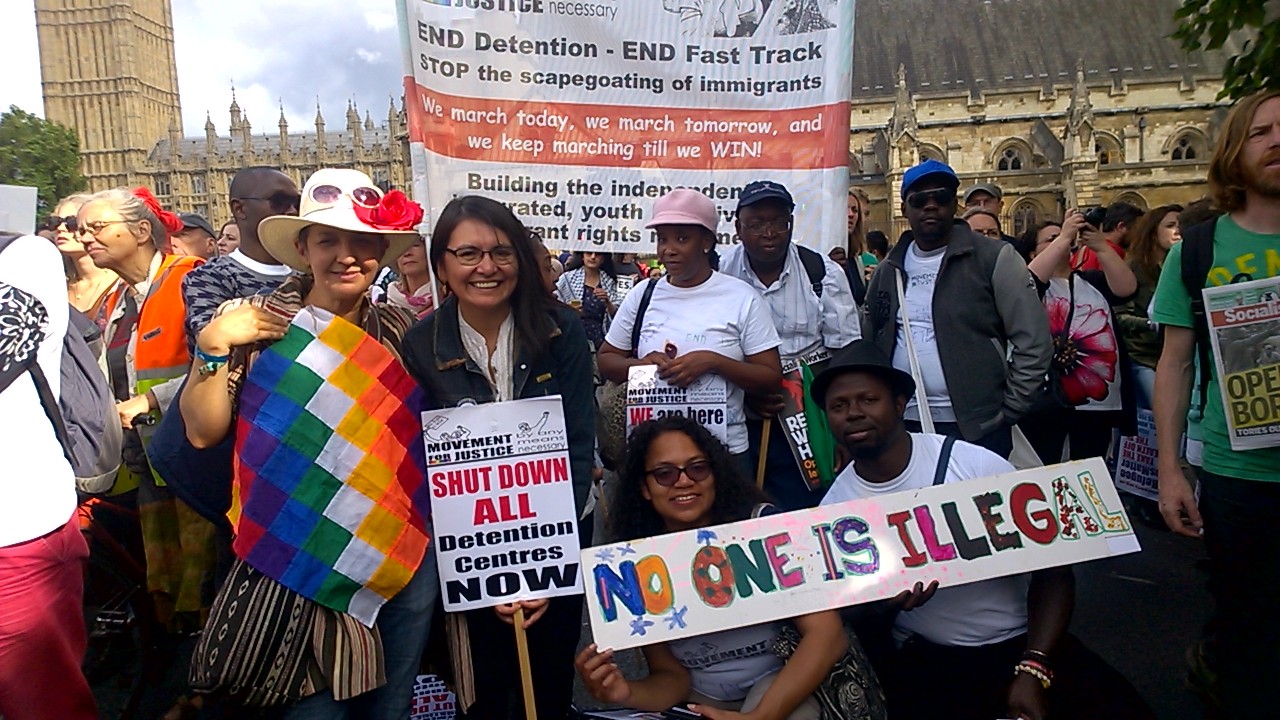 One of the experiences that marked her was the organisation of peasants and miners in Bolivia, who despite the difficult context, managed to collectively handle the challenges of displacement and segregation. She began her political participation at the young age of 14. For “a question of mental health, I wanted to have a conscience, but it was hard”.
One of the experiences that marked her was the organisation of peasants and miners in Bolivia, who despite the difficult context, managed to collectively handle the challenges of displacement and segregation. She began her political participation at the young age of 14. For “a question of mental health, I wanted to have a conscience, but it was hard”.
Migrating from Bolivia to Argentina
In 1985, in the midst of the socio-political conflict in Bolivia, the situation in the country was, in Amancay’s words, like “hell on earth”. She escaped amidst the roadblocks typical of the conflict “crying, in a truck with a Peruvian-Argentine family who pretended to be my family,” she explains. This family took her into their home during her first time in Argentina.
“I arrived in Argentina and there were still remnants of the dictatorship. They told me not to speak out politically,” she recalls.
In Argentina, she lived in Tucumán, Córdoba and Buenos Aires. Her memories are intact: “When I arrived, we had nothing. I felt discrimination for the first time, they looked me up and down and asked me: ‘Can you read?’ They assumed I had come out of a cave… In those years I saw how my compatriots were mistreated, I wanted to leave, but in Bolivia everything was usurped by privatisation and religion.
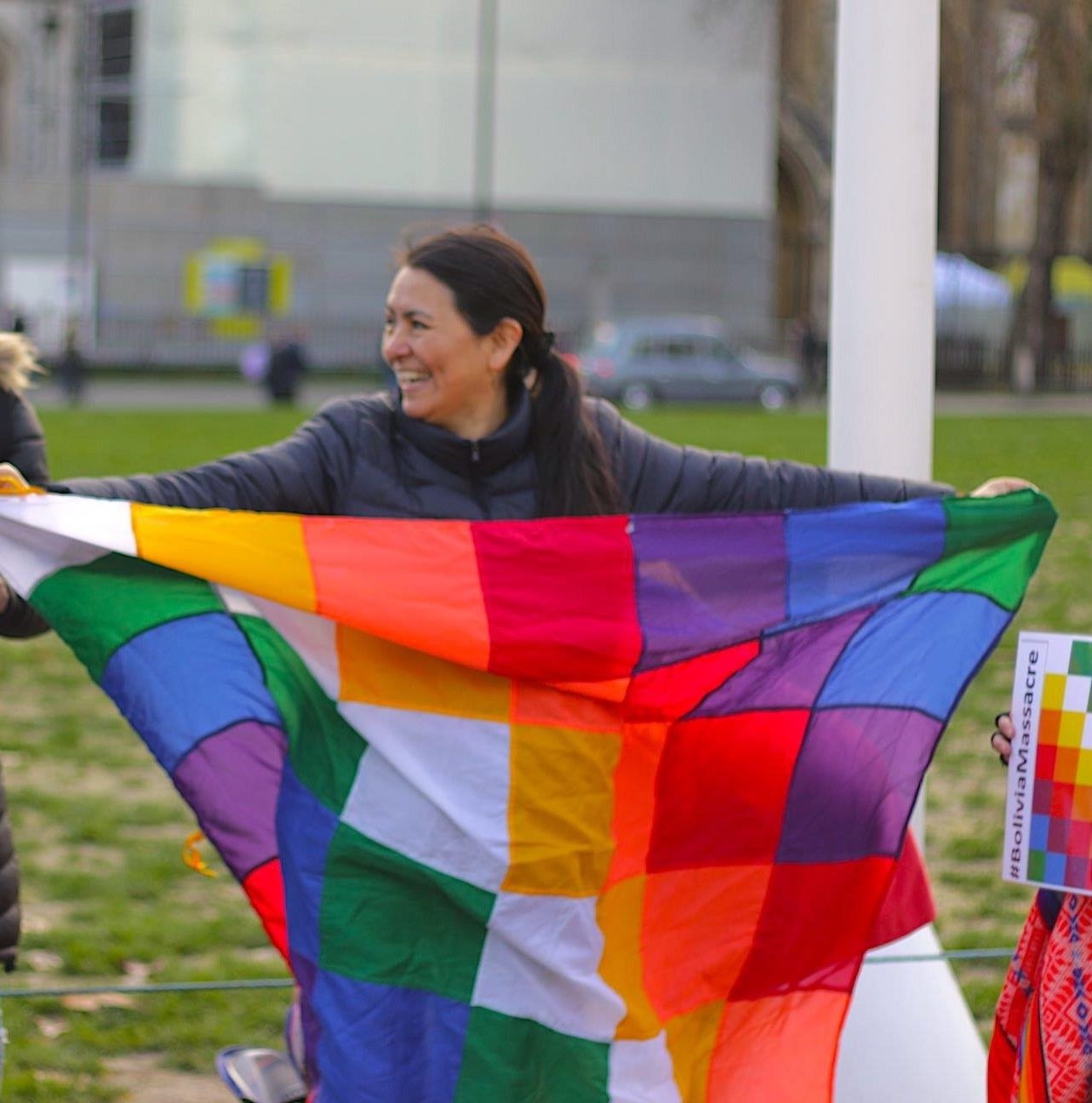 Despite these painful challenges, Amancay found strength in her mother’s words: “We are poor, we have nothing, but we will always have our culture, we know who we are, we never deny being Bolivian”.
Despite these painful challenges, Amancay found strength in her mother’s words: “We are poor, we have nothing, but we will always have our culture, we know who we are, we never deny being Bolivian”.
The second migration: to London
In 1989, at the age of 24, Amancay arrived in London. “I remember the fear of not knowing how to speak English. I was studying computer science, all the books were in English, so I decided to travel to the US. There I was refused a visa, and my passport was marked: Potential immigrant”. In London, however, she found a different environment: “I came for 6 months to study. It wasn’t my idea to stay, I wanted to learn English”.
She soon discovered in London that there was a strong mobilisation against the Poll Tax, and that there were left-wing sectors mobilised. She realised that she would not be alone. She tells us: “I felt free. I didn’t feel discriminated against, they didn’t stare at me in the street, they didn’t make judgements, they asked about Bolivia, they made an effort to understand me”. Amancay learned the language quickly, in community, because “I wanted to communicate, I had things to say”.
Another of her discoveries was that, unlike the stories she heard about Europe, in London “it was a shock to see so much poverty, people begging for food, homelessness, young people totally unprotected”.
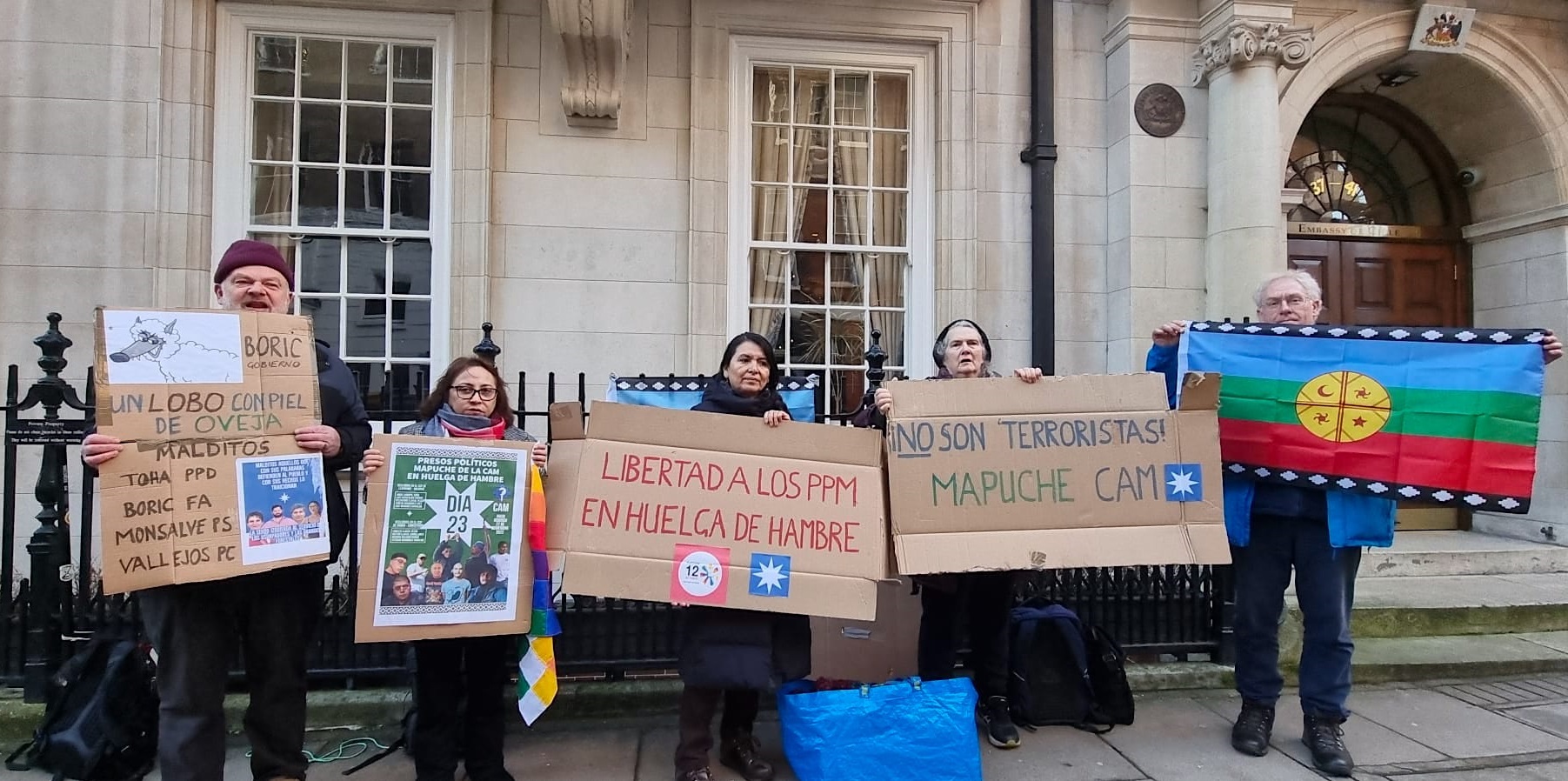 Her years of activism
Her years of activism
Soon after arriving in London, she joined a revolutionary party, to which she dedicated 12 years of her life. However, during the “Water War” in Bolivia in the 2000s, in the midst of popular mobilisations and the nationalisation of water – thanks to the massive struggle of the people under the Banzer government – she managed to invite Evo Morales, Domitila Chungara and Oscar Olivera, the popular leaders of the time. She invited them to participate in London, but when she returned, she realised that “the party to which I had dedicated my last decade was not interested in Bolivia”.
Far from giving up, Amancay recounts the way out she found: “I connected with trade unions and organisations, I approached the groups where there were few people, but that is the important work, the grassroots work, the “ant work”. Little by little I learned to speak in public, there were no speakers, so I became a speaker”.
By 2008, Amancay began to extend her activism, connecting different immigrant communities. These were years of profound militancy, telling the reality of Bolivia and Latin America in Europe. Among her actions, she even organised marches through the streets of London, in her role as a trade union leader, holding the Wiphala flag in her hands and coordinating local and international demands.
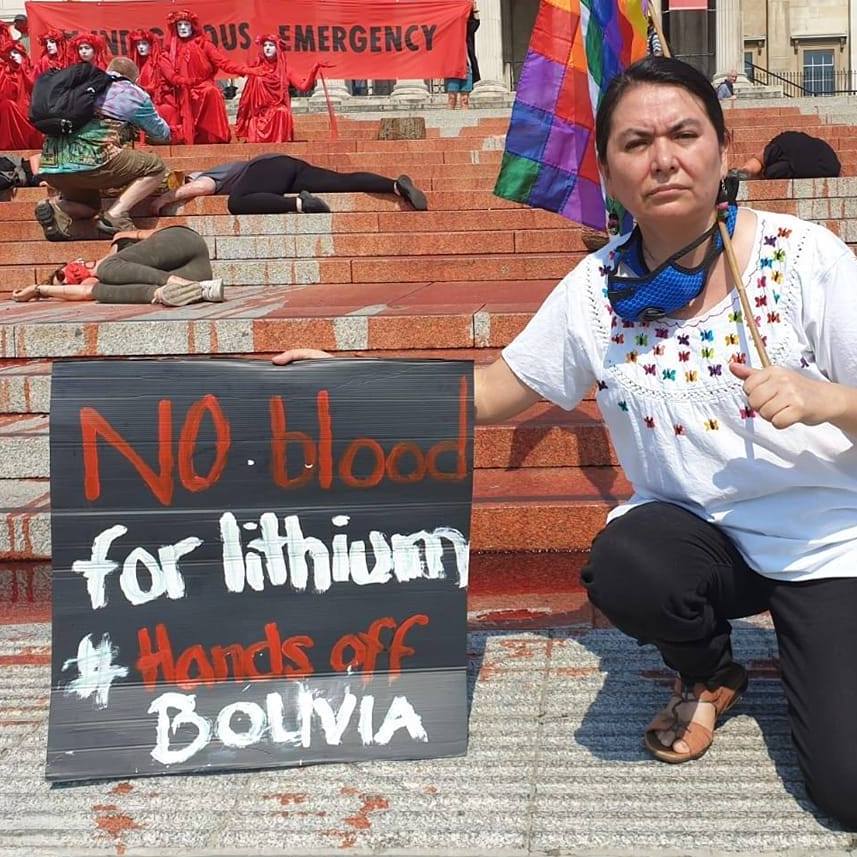 The “Bolivia Solidarity Campaign” and “La Plataforma 12 de octubre” organisations worked as transversal supports in which different cultural and political activities, family gatherings with typical food and collective dances took place. In Amancay’s words, “The dance was a gain from the 1952 revolution, because the right wing co-opts us, they have no ideas of their own, they have taken everything from us, they take away our history, our culture, our religion, our identity”.
The “Bolivia Solidarity Campaign” and “La Plataforma 12 de octubre” organisations worked as transversal supports in which different cultural and political activities, family gatherings with typical food and collective dances took place. In Amancay’s words, “The dance was a gain from the 1952 revolution, because the right wing co-opts us, they have no ideas of their own, they have taken everything from us, they take away our history, our culture, our religion, our identity”.
Links
Amancay stresses the need to make links between Europe and Latin America: “Here in London there was institutionality and in Latin America there was popular mobilisation. We had to bring the two together”. For her, there is still a lot of work to be done and great challenges. However, she recommends: “working collectively and in solidarity. Beware of betrayals, wherever we are, without ceasing to create and build with others. When you’re speaking, it doesn’t matter if it’s to a few people, you never know where that seed falls, how far your message is going to reach”.
These efforts sought to represent and promote the coming together of Latin American immigrant groups to remember resistance to colonisation and imperialism.
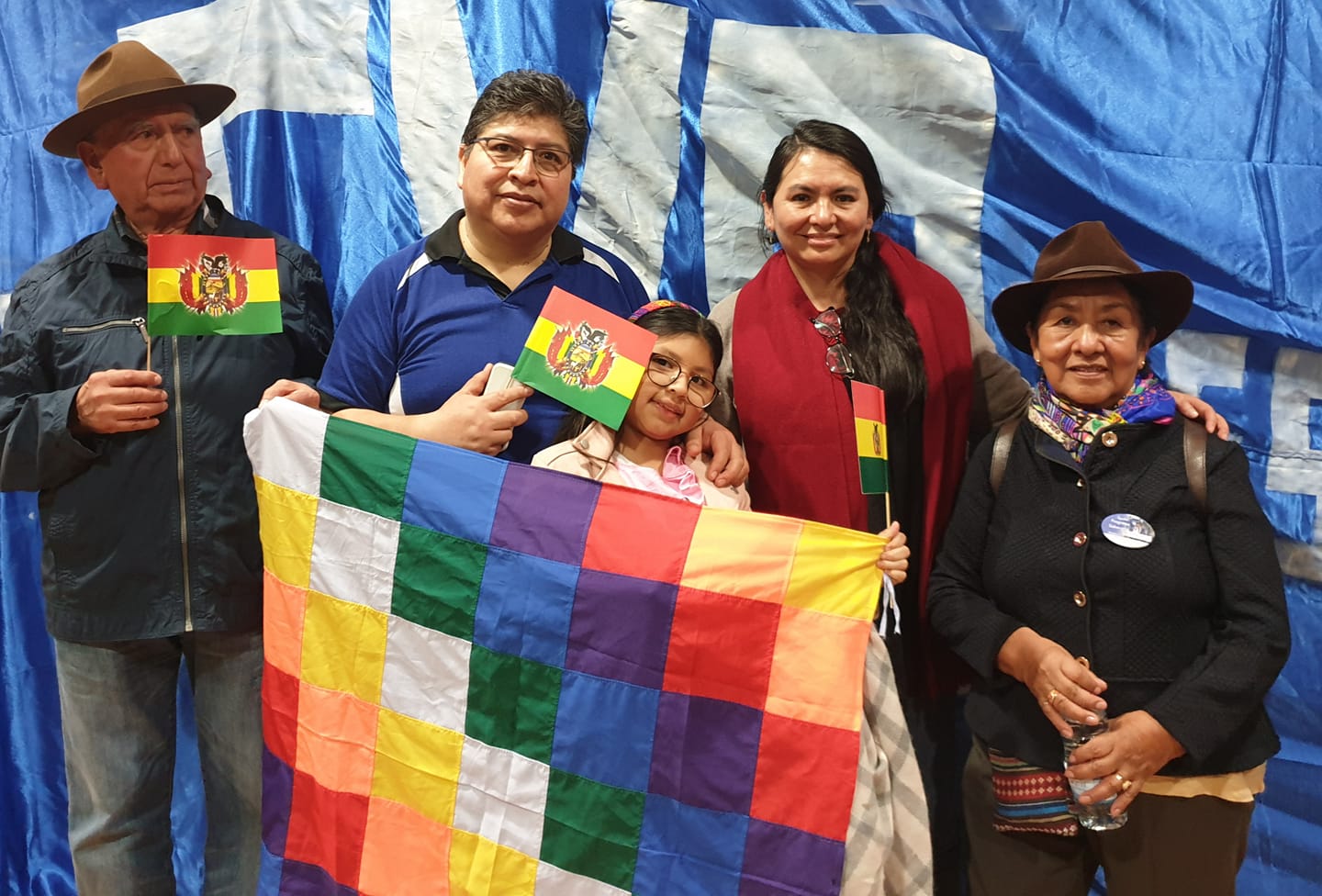 To fight for a more just, inclusive, egalitarian world. Amancay transformed her life experience, her learning, her pain, her fear, into a commitment to the struggle of the working people on both sides of the Atlantic Ocean. Her seeds are scattered around the world, growing.
To fight for a more just, inclusive, egalitarian world. Amancay transformed her life experience, her learning, her pain, her fear, into a commitment to the struggle of the working people on both sides of the Atlantic Ocean. Her seeds are scattered around the world, growing.
(Translated by Rene Phelvin – Email: renephelvin@gmail.com) – Photos provided by the interviewee and authorised for publication.












.jpg)












